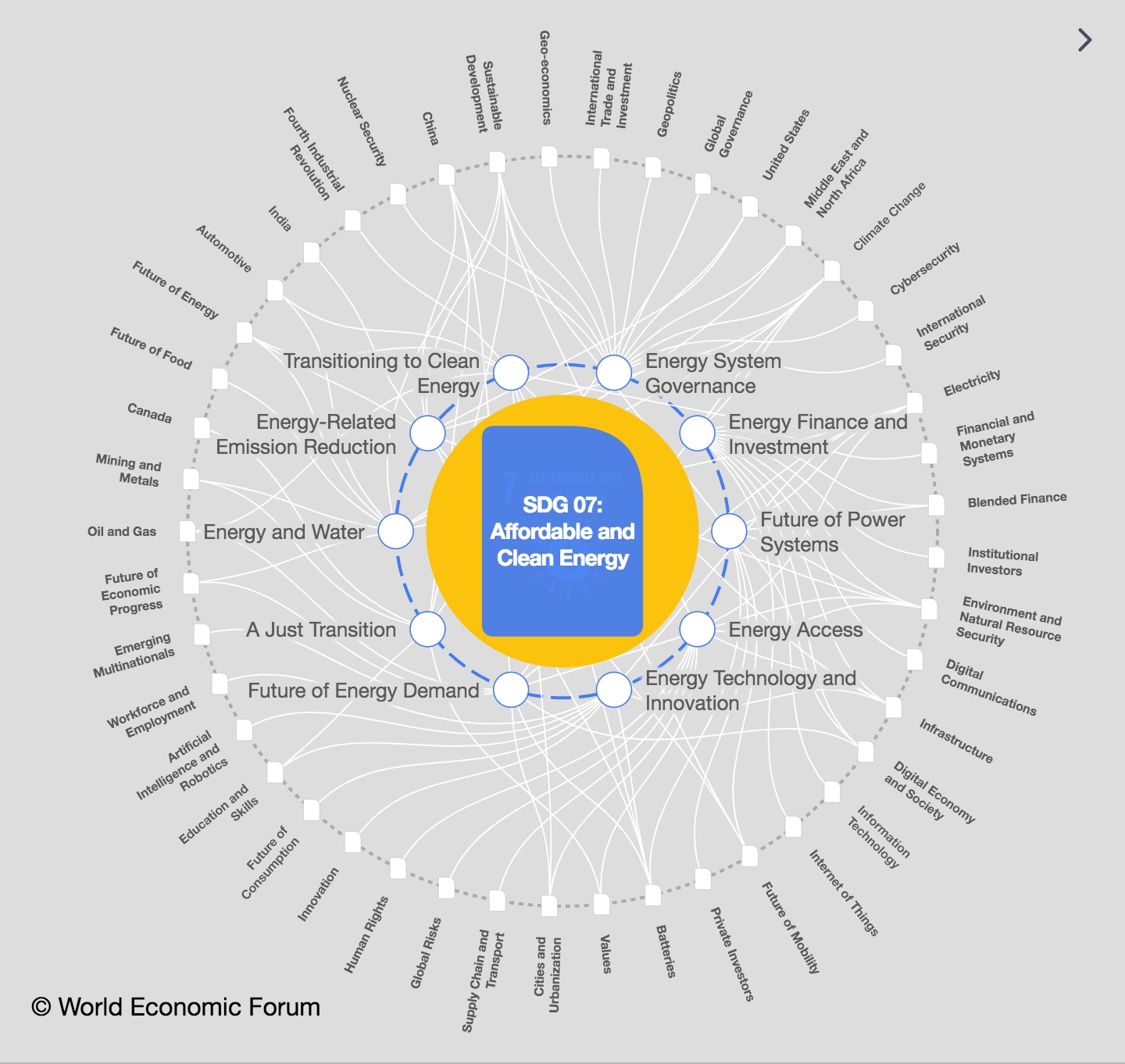This chart shows how fast renewable energy must grow to reach the world’s net-zero targets

Example of renewable energy sources, wind farms. Image: Nicholas Doherty/Unsplash

Get involved with our crowdsourced digital platform to deliver impact at scale
Stay up to date:
SDG 07: Affordable and Clean Energy
- Unless we double the global rate of renewable energy generation, we’ll never hit net zero, says a new report.
- Governments need to help stimulate the development of new renewable power plants.
- But progress in lockdowns shows what can be done to grow renewables’ share.
The world must double the rate of transition to renewable energy to have any chance of achieving net zero carbon by 2050, the International Energy Agency (IEA) has warned in a report.
As the chart shows, the gap between what we have now and what we need is huge. The IEA says almost two-thirds of electricity generation needs to be renewable by 2030 to set the world up to achieve the 2050 Paris Agreement target.
This means adding 12% more renewable generating capacity each year over the next eight years - double the current rate. “Much faster deployment of all renewable technologies will be needed to put the world on track with the Net Zero Emissions by 2050 Scenario,” the agency explains.
In its report, Renewable Power, the IEA says global renewable electricity generation increased by 7% in 2020 with wind and solar, together accounting for almost two-thirds (60%) of the growth.
Stating that “more effort is needed”, it warns nations not to rest on their pandemic laurels. During 2020, renewables accounted for 29% of total global electricity generation - a new record.
But, according to the IEA, much of the growth was due to reduced power-demand during lockdowns. Because renewables like wind and solar tend to be always on, their share of generation rises when controllable sources such as coal and gas switch off as demand falls.
To achieve net zero, IEA computer modelling shows that the rate at which new renewable energy capacity is added globally needs to jump from 134 Gigawatts (GW) a year in 2020 to 630 GW a year in 2030, a step up that the IEA says will “require considerable effort”.
Accelerating the move to renewables
Installation of all forms of renewable energy must be accelerated, and existing government policies are lagging what is needed to stimulate the development of new renewable power plants, says the IEA.
The report singles out ocean, geothermal and concentrated solar power for particular concern. Although generation from marine technologies like wave and tidal power increased by a third in 2020 - mainly thanks to new capacity in Denmark - the IEA says progress needs to be faster.
What's the World Economic Forum doing about the transition to clean energy?
The growth of geothermal generation stalled in 2020, dropping behind progress in previous years. And only China added new concentrated solar power (CSP) capacity in 2020. CSP uses mirrors or lenses to concentrate sunlight to provide heat for generation.
However, the pandemic has proved an opportunity for some nations to increase their total renewable generation, with global renewable capacity growing by 46% from 2019 to 2020, setting a record for the rate of expansion.
In particular, the IEA notes there was a 192% increase in wind-generating capacity in 2020 and solar energy installations grew by a quarter over the year. Government deadlines for new capacity in China, the US and Viet Nam helped accelerate the roll-out in those countries.
Building back renewably
The agency calls on nations to devote a higher proportion of their COVID-19 economic stimulus packages to renewable energy, saying it will create jobs and economic development while reducing emissions and encouraging innovation.
The increasing competitiveness of renewable energy provides an opportunity for governments to move faster. But the IEA says existing renewable generators, like hydro power, must not be left behind and must become more efficient.
Connectivity to the power grid is key to stimulating new renewable projects, the agency adds. But it says just encouraging homes and businesses to install their own renewable power sources can have an adverse effect on the overall energy supply if it’s not managed properly.
Governments must consider the needs of all sectors of their economies, says the IEA. “For example, the success of electric vehicle deployment will depend critically on the strengthening of electricity distribution networks and smart charging systems at the local level,” its report states.
The World Economic Forum’s Fostering Effective Energy Transition 2021 report, said that despite “transformative changes across the energy system” clear challenges remained. After a brief drop in emissions during the pandemic, global emissions had rebounded.
“As we head deeper into the decade of action - during which we must accelerate progress towards transition and halve emissions by 2030 to remain on track to meet the 1.5C Paris Agreement goal - we cannot afford to lose momentum or, worse, go into reverse,” it said.
Don't miss any update on this topic
Create a free account and access your personalized content collection with our latest publications and analyses.
License and Republishing
World Economic Forum articles may be republished in accordance with the Creative Commons Attribution-NonCommercial-NoDerivatives 4.0 International Public License, and in accordance with our Terms of Use.
The views expressed in this article are those of the author alone and not the World Economic Forum.
The Agenda Weekly
A weekly update of the most important issues driving the global agenda
You can unsubscribe at any time using the link in our emails. For more details, review our privacy policy.
More on Energy TransitionSee all
Ewan Gribbin and Deepanshu Singh
July 26, 2024
Eleni Kemene, Bart Valkhof and Thapelo Tladi
July 22, 2024
Espen Mehlum
July 17, 2024
"Arm" Piyachart Isarabhakdee
July 16, 2024









